
What if we told you that there could be a centralized office which connects nearly all of the activist efforts in the cultural sector in Austria, providing general and targeted support, resources, services, workshops and networking scenarios for members and the community at large? And what if we told you: it’s already here.
D/ARTS – PROJECT OFFICE FOR DIVERSITY AND URBAN DIALOGUE is reaching the end of its first two years and has quite a lot to show for itself already. Emerging from a glaring void in the arts and cultural scene in Austria, D/Arts has arrived – with many hats to wear, shoes to fill, and requests to juggle. As part of the network of alliances they’re building, musician, composer and singer extraordinaire, GOLNAR SHAHYAR has been an integral part of the process, with both her expertise in music, as well as her personal, ongoing fight for anti-discrimination practices and inclusion in the music scene. For these reasons and more, Arianna Fleur Alfreds sat down with one of the founding members of D/Arts, ZUZANA ERNST and GOLNAR SHAHYAR to discuss the major challenges, pitfalls and speed bumps that exist in the Austrian music and cultural scene, as well as the changes and solutions that a better future could entail.
This is PART II of the interview. PART I can be found here.
When it comes to awareness and action with regards to inclusion, is Austria getting better?
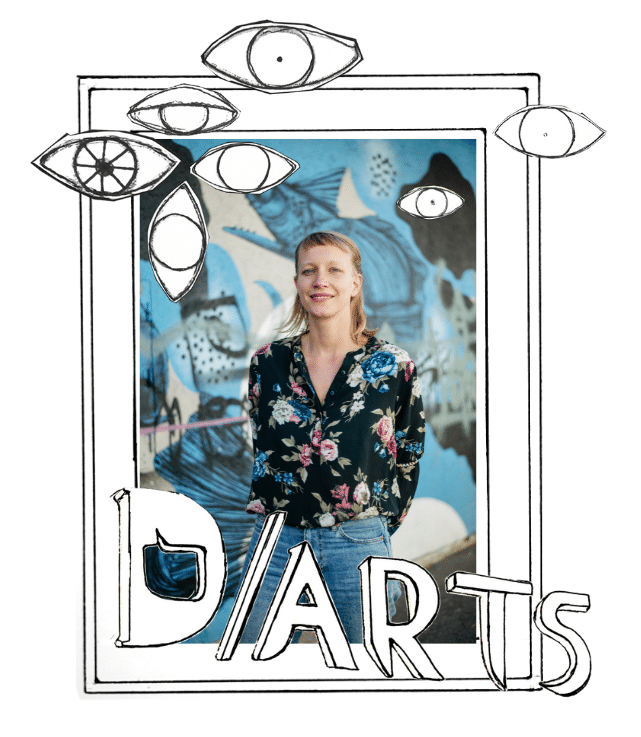
Golnar Shahyar: It’s hard to say because it’s very new and to see sustainable results for something like this, you have to give it time. But I can say, at least, there are more people who are talking about the topic and would like to do things differently.
Zuzana Ernst: I also think there is movement – of course with many mistakes, and also plenty of lip service but no action. Or, for example, a lot is still happening just at the level of the audience. So then it becomes these, so to speak, “audience development, outreach programs” where the goal is to reach more diverse audiences, but not changing from the inside, which will only really happen if the staff or the programs change. So I think we’re at this point where there is more conversation occurring, but it’s going to take time until it also manifests in the programs and staff.
“We don’t have sufficient, official data”

Another thing is that we need a better understanding of what is actually the status quo. We need more data. In order to be able to lobby better and to adjust better, we need more concrete stats, which is very much missing. We see that there is some data on audience statistics, but there’s not really data on diversity – and to really go into it and understand what it actually means: “diversity”. It’s intersectional. It’s not only one thing. It’s not only gender. It’s not only disability. It’s not only class. It’s complex and overlapping. It’s so many different aspects that come together. And how do you make questionnaires and collect data in ways that are sensitive to that? Of course, there are experts out there, but they need to be funded.
Golnar Shahyar: Things are not transparent in Austria and you don’t have any institution making people responsible to work transparently. And, no, we don’t have sufficient, official data.
I remember with WE:Shape, we did research about this to find out: Is there any data? Like, what’s going on? And we couldn’t really find much tangible or usable data.

Can you describe WE:Shape for us?
Golnar Shahyar: It was basically that I made a few public statements about the problems I saw, and described how I felt, and then some people wrote me: ‘I’m willing to help you.’ It was as simple as that. And one of those people was Yalda Zamani and the other was Rojin Sharafi. And, well, we couldn’t go much further than that because it’s so much work – oh my God. But I think we did a very good job in, for example, categorizing the problems, and even describing the strategies a little bit. But the thing is the execution of all these ideas require money, energy and time. We’re all freelance musicians. We don’t have that time. It’s practically impossible to do that amount of work on so many levels. And that’s why I’m so happy that D/Arts is happening.
“the execution of all these ideas require money, energy and time. We’re freelance musicians. We don’t have THAT time.”
So does D/Arts have the potential to help burning-out musicians, working doubly as musicians and advocates, to take something off of their plates?

Zuzana Ernst: Ideally, yes. If there is going to be funding for D/Arts, then this is exactly what it’s also for. And people are already starting to knock on our door with requests ranging from being on the podium for certain topics, to consultations. Although it’s only the beginning, D/Arts started an Experts platform – to have people on the website with profiles and their expertise highlighted. Because it’s also such a common argument to say, “Yeah but we don’t know people. So we hired the white cis man…”. With the Expert Pool, we can directly point to and say: the expertise is here. Let’s connect this person here, in this or that way. The hope is that this evolves so that this activist struggle has an infrastructure to draw from and lean on.
“[…] we have a very good infrastructure for our culture – especially for music. But this is not available for everybody.”
What message would you like to send to the music community in Austria – as in, what are the biggest, most pressing problems you encounter and witness at present? And on the flip side, what is the vision of the music scene that you want to see?
Golnar Shahyar: I will start like this: The most important thing is to realize that we are so privileged in Austria. That is very obvious. And we have, in comparison to many other countries, a very good infrastructure for our culture – especially for music. But this is not available for everybody. That’s the first thing that we have to understand – we have a fantastic, freaking good system! So it’s worth fighting for! Because a lot of opinions float around that everything is “bad”. It’s one of the things Viennese are renowned for: complaining – because they want to keep their image of victimhood, and don’t want to come out of that. So the biggest thing is to step out of the victim role and start appreciating what you have, and start taking care of it, and, first of all, make it better – upgrade it, because every system needs upgrading. Realizing that is very important. A lot of my colleagues think they are, you know, the poorest, or the most marginalised with no power to change anything, and so they don’t do anything about the problems.
“The most important thing is to realize that we are so privileged in Austria”
So flipping the switch from victimhood to acknowledgement of privilege, and therefore embodying the power to make changes…
Golnar Shahyar: Yes, a lot of my white colleagues have no idea how much privilege and power they have. And that’s the biggest problem – they’re not using their platform and power. And I’ve always wondered what would happen if the community – each person – would use 5% of their time, to make sure the community’s empowered. Just 5%. I think we would see huge change!
The second thing is, again, education is one of the most important things that has to be more inclusive in its practice – from the content, to the system.

“every system needs upgrading”
And the third thing is: media. Media is very behind and it’s actually, of course, feeding from political agendas. But this discourse has to come into the media. We need more presence of more diverse arts in the media. That’s why, for example, things like the Amadeus Awards are very significant because they are showing this on TV and radio and they’re normalizing homogenous musical practice. So media should have a critical voice for that. The next thing is institutions – but they’re moving a little, gradually, I think, but it’s a long way to go.
And one more thing: in Austria, we lack – for everybody, generally – an infrastructure for freelance musicians to build their businesses. We lack specialists in booking, management and also journalism, for people who work in different genres. This is a general problem for everyone.
So it’s about diversifying the music industry in terms of content and who is representing who, and how…
Golnar Shahyar: Exactly. We now have a little bit more infrastructure and specialists who work in a couple scenes, like the pop scene. But the pop scene is a white scene in Austria – from the musical language, but also physical the bodies – like everything about it is homogeneous. Also we have an infrastructure for classical music, which is also white. Some are also responsible for the so called “World Music scene” but they work with a lot of cliches and exotic marketing tools that the industry dictates to everyone. And we have almost nothing else for anything else that prioritizes creativity and innovation. We have way too few specialists in the scene who are risk-takers, visionaries and dreamers.
Another thing to mention is the culture of communication. Like, I’ve always dreamed of having a culture of talking and exchanging in the community, and maybe meeting points that happen regularly and among the practitioners; but also among the professionals who are working in booking, organizers, curators, journalists – that regularly come into contact and exchange their ideas.
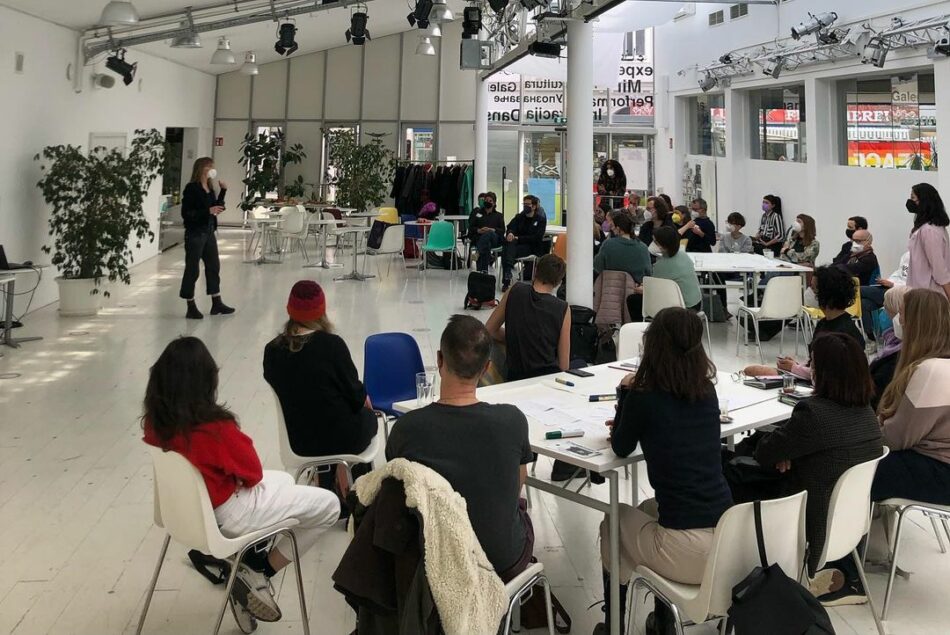
“we need to start to talk as a community”
So there’d be potentially less segregation among different scenes and perspectives …
Golnar Shahyar: Yes, we need to start to talk as a community.
And also: fair pay. That’s the last thing. We need the working conditions of performing artists to be defined and protected, and to be upgraded regularly.
“I would wish […] that people listen more, and not see diversity as a threat, like someone is taking away things.”
Zuzana, what are your hopes and dreams for D/Arts?
Zuzana Ernst: I can say I really wish for this to take on its own life – to become this broad alliance of many actors, having resources to work together towards change, whatever shape it takes. Like, our dreams range from just having a little space somewhere where people can knock on our door and exchange ideas and resources, to, you know, taking over a whole street block with lots of initiatives in the same complex and so on!
And what’s your biggest wish for what D/Arts could achieve?
Zuzana Ernst: I would wish the effect is really to have people listen more, and to not see diversity as a threat, like someone is taking away things. Because it is about making space at the table. But it is good for all of us. Right now, dominant culture – pop music, for example – is super white. The dominant culture is very homogeneous, but the society is not. There are so many different expressions, so many different opinions and forms here. And there’s so much potential. It’s something very positive.
“THE DOMINANT CULTURE IS VERY HOMOGENEOUS, BUT SOCIETY IS NOT”
Golnar Shahyar: Sorry, can I interject? Why is it positive? – I want to know your opinion. Why is diversity in arts and culture important?

Zuzana Ernst: Because I think we are stuck in narrow, outdated forms of expression. And it’s about questioning this Eurocentric way of production, as well as how we are consuming art and culture. I think the capitalistic structure is a big factor in this, too. And it’s about questioning or opening up for different aesthetics, as well. And this ranges from the way we are learning things in our education, up until where with the production process is happening and what is offered on stage. And I think this goes hand-hand with what kind of conditions occur in the production of culture. Like: what kind of speed are we producing in? Who is backstage? What language are the things offered in? You know, it goes from barrier-free up to who is feeling welcome in a team, and so on.
“it is about making space at the table. But it is good for all of us.”
I think a lot of people think, ‘We need to diversify, okay. So, we are going to have a Black person in the team, and then it’s going to change things.’ It’s not! It’s not only about this! It’s also about changing the way things are running. It’s about how the departments in institutions are communicating together. There are many different shapes that art and culture can take. And at the moment, it’s mostly driven by the structures that are in place. Full stop.
Golnar Shahyar: Yes. I asked that because a lot of people don’t know …
… Why they want diversity?
Golnar Shahyar: Why diversity is good. We all say we want it. But why?!
“the most amazing art comes from the diversity of approaches”
And it’s true, everything you said, but if I may I add two very important things: For any prosperity, you need exchange. So, in order to have that, you have to open up, and come into communication. And you know, the most amazing art comes from the diversity of approaches. It’s that aspect. And of course with prosperity comes more money for the whole community, and more international connection.
The next thing is on a political level. Because what is actually “culture”? Culture has to be a space where people feel included and, at the moment, we don’t have that space. It’s a space that is very exclusive, most of the time. And, I mean, culture is the face of politics. It’s the expression of politics.
“If we don’t make changes, we are heading towards a very polarized society”
And if we don’t really take care of this, we will continue to have more and more polarization in the country. Because this is not a problem of non-white Austrians. It’s also a class problem, and then we end up having people who feel excluded by this intellectual knowing-better class of people. And this is a very political thing. So that’s the big picture. If we don’t make changes, we are heading towards a very polarized society.
And culture is the face of that polarization…
Golnar Shahyar: Yes, and it’s the face of where it could change.
Zuzana Ernst: And whoever has the dominant hand there is guiding the political discourse in many ways.
Golnar Shahyar: Exactly. So when people talk about this philosophy of: “art for itself” – separate from politics – it’s bullshit.
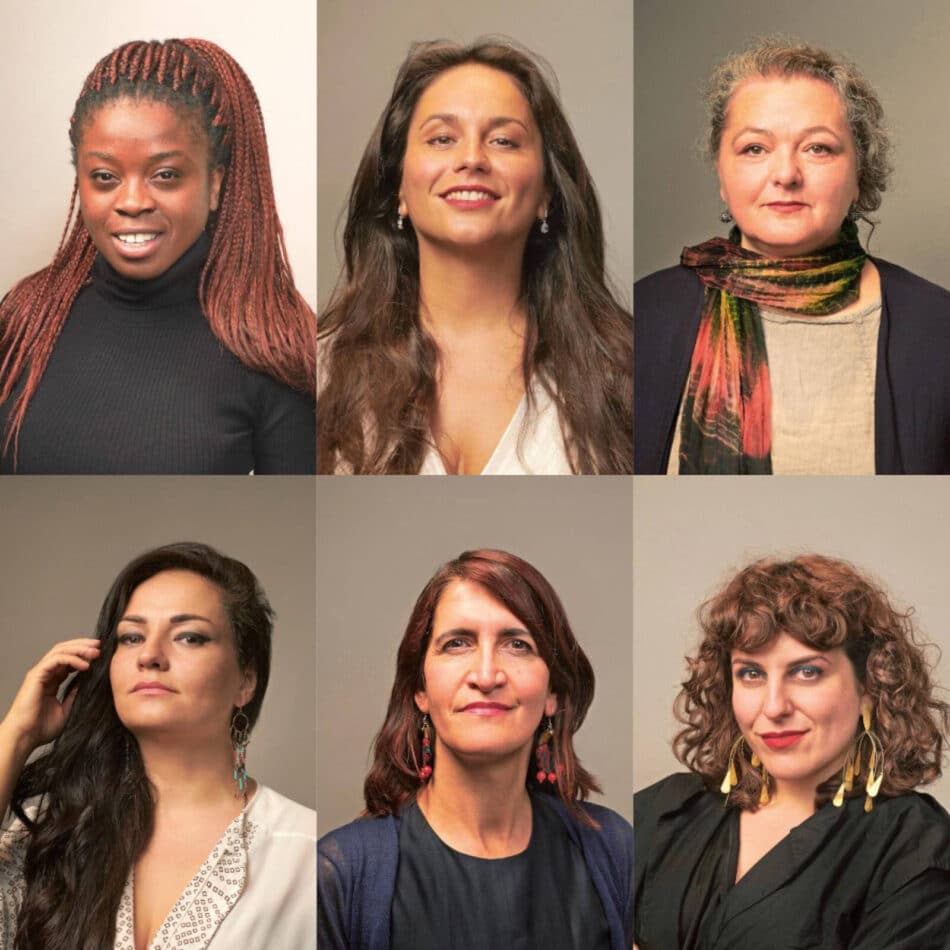
So, what’s the significance of the program point Wiener Stimmen (Viennese Voices) at Musikverein? [Note: performance takes place on June 4th, ticket link and raffle below.] And what can we expect from it?
Golnar Shahyar: On this evening, there will be six singers, and I have the privilege and honor to be one of them. We will be playing our music – some of us, traditional songs and some of us, our own compositions with the Tonkünstler Orchestra. The songs have been arranged by Michael Radanovics and we will perform it in the Goldener Saal (Golden Hall) which is symbolically very, very important because, for the first time, I think, there is something like this happening – which is recognizing that Vienna has other voices than what is usually being performed there, as well as giving different musical styles or approaches dignified value. And also really investing in it. So it’s not a project of tokenization – or as I like to put it, a “charity project”. It is actually fundamentally very different. Also in the way that they communicated with us, they reached out at the very beginning, making sure that everything they say about us is the way we want it to be said. Believe it or not, this is a very unusual approach. It normally doesn’t happen, and a lot of the representation of the program falls into eccentrification or false information. But this time is different. It takes more energy, for sure. We’re in so much communication since like, more than six months.
“[…] there’s a responsibility for each one of us – as soon as we have the platform, are established and we understand things – to make sure that we create a better space around us, for ourselves and everybody else.”
So it’s slower – a different way of working?

Golnar Shahyar: Yes. And in that way, is a very good example of how things could be. Because I believe usually 99% of the work – with these kinds of projects, concerts, etc. – is done behind the scenes. So it’s important how it’s being done, how people are being paid, how they’re being treated. And I can really say it’s all been perfect; really, this has been different.
What are other things that could be done to better conditions in the music scene, in your opinion?
Well, this is something that I would like to say to my colleagues who have been established for a while – white or non-white, it doesn’t matter: I think there’s a responsibility for each one of us – as soon as we have the platform and are established and we understand things – to make sure that we create a better space around us, for ourselves and everybody else. And if we refuse to do that, then we are contributing to an exploitative, suppressive system.
A lot of people don’t know that they are part of this system. But they are. And it’s a challenge to make them realize their inaction, and that their passivity is actually a huge action.
I guess this once again comes down to communication, and building spaces of honesty and trust to communicate within.
Golnar Shahyar: Yes, for that, one has to find allies in different places, and as soon as they are ready to collaborate, their network will activate.
Zuzana Ernst: Yeah, it’s so important to have engaged people inside of the organizations because I’ve seen it again and again in institutions – it’s usually about one person that feels like ‘ah, something needs to change’. Single individuals can’t do it all by themselves. But then there are like these warriors in the back of these larger machines, and then suddenly it turns into a different story.
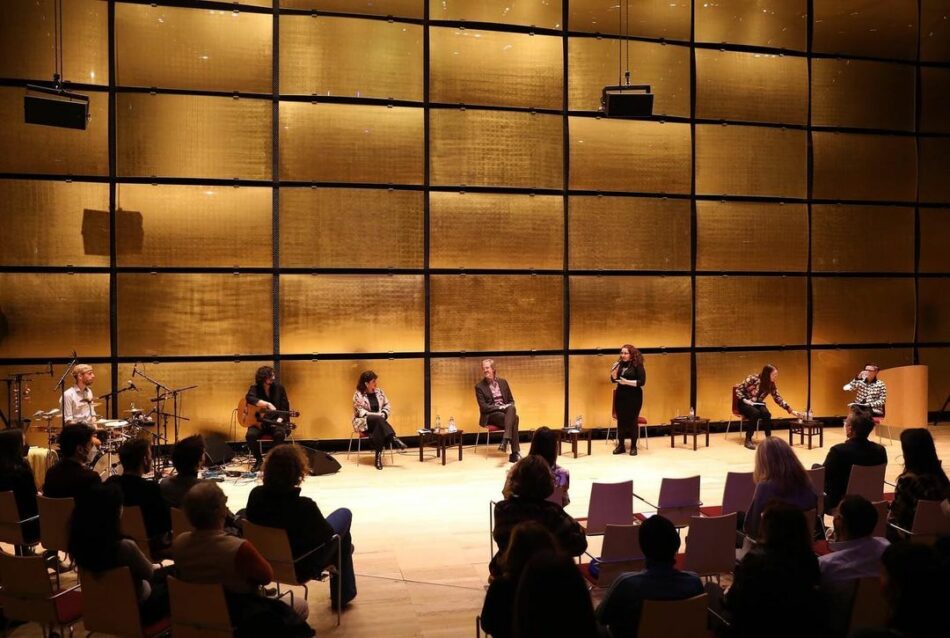
Right, again, that’s the potential power of D/Arts – to help back up the warriors, and possibly turn organizations into warrior-organizations.
Golnar Shahyar: Yes, we generally focus on a systemic problem that has to be systematically changed. But also, as you said, the individual agency is absolutely important. One person can create so much, in different settings, and just recognizing that is also very important.
So, what’s next for D/Arts then?
Zuzana Ernst: As I mentioned, we had the discourse series – the four big events. And now it’s going to conclude with an artistic production, which is more like an artistic research project. Sheri Avraham is the art director and is working together with an amazing team of artists of different genres. It’s going to take place at the end of August – beginning of September. It’s called ze_RO!Ayns (Zero:One) and it deals with the topic of breaking from binaries. It imagines a different mode of cultural production and is set in a different world. So it’s kind of everything we’ve been talking about, but trying to translate it into an artistic process and manifest it there. So the end of our 2-year process is ending with sort of a big experiment – translating words into action.
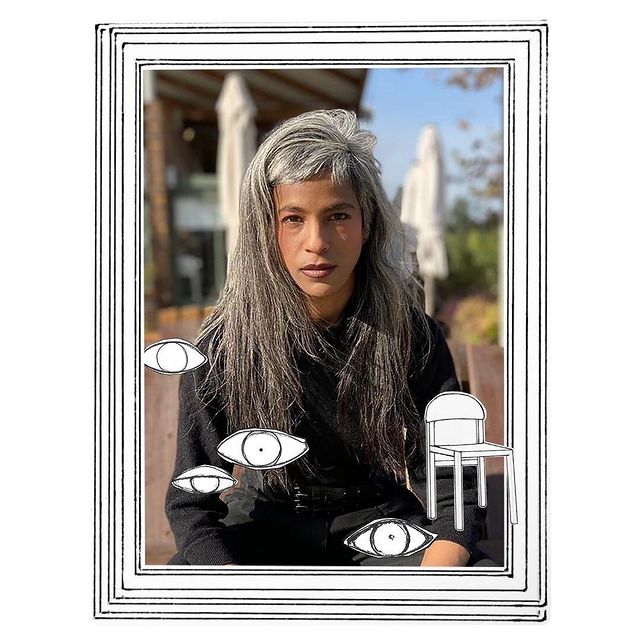

And, although D/Arts began initially as a Viennese initiative, it’s already expanding nationally, right?
Zuzana Ernst: Yes, in November: “D/Arts Goes Salzburg”! It’s a first step, but the idea is to eventually have offices in all the provinces. It’s so important.
Thank you both!
Arianna Fleur Alfreds
For tickets to the Wiener Stimmen concert at Musikverein on June 4th, 2022, check out our raffle on the mica website, or go directly to the venue’s homepage!
PART I OF THE INTERVIEW can be found here.
Links
mica Ticket Raffle for Wiener Stimmen at Musikverein
Wiener Stimmen Event at Musikverein
